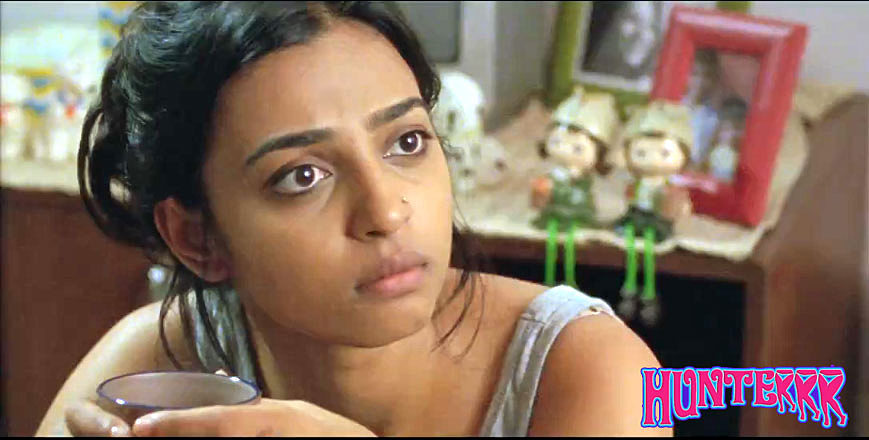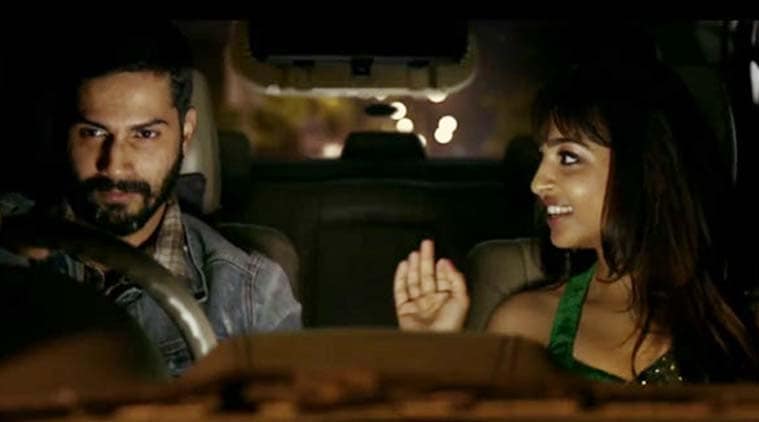Another thing to note is that any of these five especially the winner could have actually replaced any of the other five nominated for Best Director this year, they're that damn good. However, these five do not get to do that due to the new rule set.
Anyways, before we jump right in; here are those directors that missed the cut and why...
Sharat Katariya for Dum Laga Ke Haisha: He makes a few missteps no doubt there, with dull patches taking out the film that reigns on a certain acceptable energy level; yet Katariya manages to helm one of the finest films of the last year.
And now onto the nominees for the HIndie Award for Best Breakthrough Director...
Navdeep Singh for NH10
Starting his career with the underrated Manorama: Six Feet Under [inspired by Roman Polanski's Chinatown], Singh didn't get the upheaval he was probably looking for with one hell of a noir film.
Tackling with bravery, another new genre in Hindi Cinema with this rooted Slasher Thriller, Singh reaches another level. Though the film is inspired by the Michael Fassbender starer Eden Lake, NH10 has a depth unwarranted from the genre film due to its Indian sensibilities.
The film tackles the subject of a lawless Gurgaon, the city in perpetual limbo; with one side seeing rapid development and the other facing a tragic regressive trajectory. The film based around honor killings turns south for its protagonist Meera [Sharma] when she and her husband collide against nefarious elements including their leader on the verge of murdering his own sister and her lover.
It's brutal, vicious, paints a stark and harsh honest picture of society. It never lets the protagonist rest nor come off as a one sided light of goodness, nor does it delve into labels of backward class violence and regressive or feminist actions.
Singh tightens the reigns of his film as best as he can, though the climax does go overboard. It becomes a showcase for the director, to present what he can bring to the table in terms of new content to an ever changing cinema. It also helps that he is able to push his leading star; Anushka Sharma, to her career best.
Neeraj Ghaywan for Masaan
Tackling weighty issues of Patriarchy, Casteism, Fate, Loss, Depression and Redemption amidst the backdrop of one tattered love story and another just blossoming;
Neeraj Ghaywan makes one hell of a statement. It's not easy, Masaan is a film that follows two threads among other smaller plot points.
To put it poetically, Ghaywan's efforts in Masaan are like diving right into the banks of the Ganga river in Benaras [where ironically the film is shot as well] and trying to purify it back to its original state.
In essence Ghaywan weaves these two narrative strands together to provide an emotional catharsis amidst his commentary on certain issues that affect small town India.
The icing on the cake;
He brings out the best of his young team along with himself; allowing the young performers to shine through including Avinash Arun, Richa Chadda, Shweta Tripathi and Vicky Kaushal. As well as leaving a stamp of his own, without a yet distinguishable style that happily doesn't conform to any of his mentors own.
Prawaal Raman for Main aur Charles
More of a comeback then a breakthrough, Raman finally finds his footing with a film that lets his vision fly. Prawaal Raman takes on the story of iconic serial killer Charles Sobraj [Hooda] from the eyes of the man hunting him for years on end Amod Kanth [Hussain].
It gives his film a purpose, setting it around one major sequence around Sobraj's colorful criminal life while peppering it with montages of his other conquests. It's an interesting character study that allows the viewer to see a cold and detached look into the mind of Sobraj while also adhering to a stylistic charm of the setting through the lens of the character.
At the same time Raman's choices allow it to be slightly low key, as the hazy view of the world is filtered through the eyes of Kanth rather than the seductive Sobraj himself.
It's a murky edge to the film, that is just as seductive and Raman makes it his own. While at times it grows dull, Raman as a director brings a voice so refined and well documented that his efforts despite causing minor niggles, stand strong and change the game.
Kanu Behl for Titli
Coming from the heart and his own experiences, Kanu Behl's Titli is a stark look into the horrifying effects of patriarchy and toxic masculinity.
He takes it up a notch from his mentor Dibakar Banerjee, to hit deep into the bylanes of Middle Class Delhi and dissect the violent natures of a family burdened by their silent dominant father [played in a meta-hilarious fashion by Behl's own father].
Behl most likely conjures up his own nightmares, playing with some questionable characters who still remain tight and emotional and true when it comes to family. It's a powerful notion that remains on the balance between morality. At the center Behl is able to reflect this semi-true story and open himself out to the world, a reason why film makers make films.
Shonali Bose for Margarita with A Straw
Sensitivity is at times the greatest weapon a filmmaker can have, yet some filmmakers fall into the honey trap of turning sensitivity too sweet and simple. This type of a director is the prime example of why certain undeserving films are much loved by the Academy.
A certain sensitivity requires an edge of reality, thus the equation allows it to become; Humanity. That innate human quality to understand different people, people done wrong by circumstance but people nonetheless. Shonali Bose gained that experience through her understanding of her cousin Malini Chib, who is afflicted with cerebral palsy.
It pushed her to make this infinitely sweet [but not diabetic] and simple coming of age tale of a woman with a natural desire to love and be loved in a condition [of Cerebral Palsy] that in reality has made invisible to her plight.
We can help her with her issues as she is unable to, we can say we understand her as human and a person but we in our infinite wisdom choose to ignore her base desires, thus denouncing her as anything but human. It's a profound thought that Bose subtly runs through her passionate and breezy but emotionally heft film.
It's a wonder of art that she constructs from the heart, without ever begging and pleading for the audience to care. A great director is one that trusts her/his audience because they trust their own work, and Bose does this through and through.
And the Winner is...
Neeraj Ghaywan for Masaan!
That marks a third huge win for Masaan. Is this a sign of things to come?!
Moving on, now we go to the most popular section of the awards; the staggering 8 main Acting Awards!
Up Next: First up are these five women...A woman embroiled in the investigation of the death of her daughter, while shifting between perspectives. A blind girl discovering love and betrayal in her lovers coming of age. A hard working mother finds acceptance among younger women during the celebration of her friends upcoming wedding. A mother struggling with her own pains as her disable daughter reveals her own sexuality. A sweet voiced Matriarch with a ruthless cold heart...
the HIndie Award for Best Actor [Female] in A Supporting Role [Drama]




























